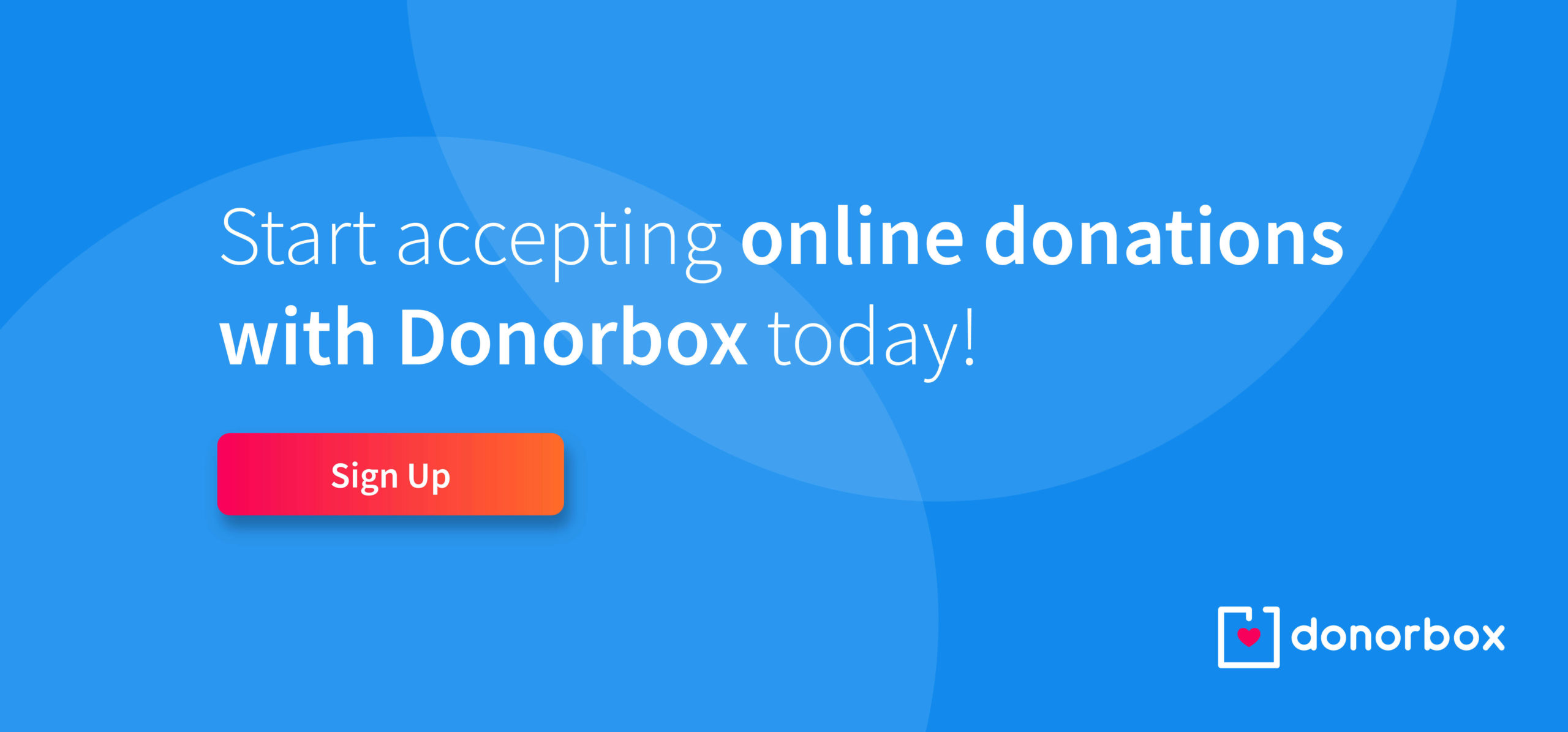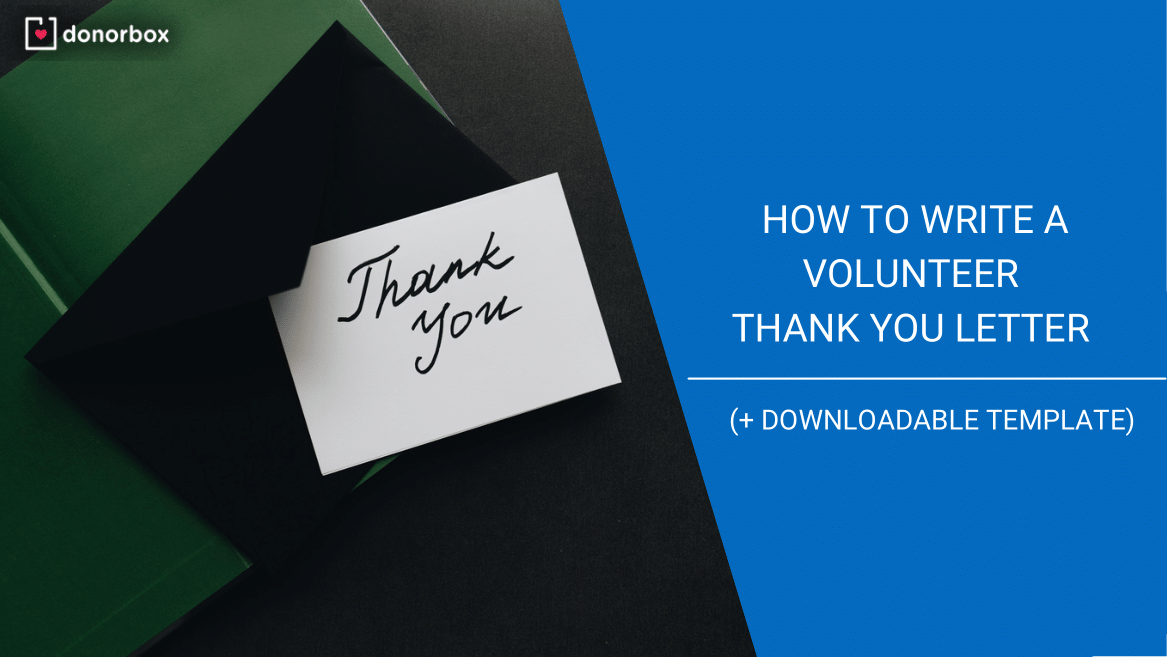Volunteers are a vital part of every nonprofit, regardless of their size. Many organizations spend the same amount of time looking for and training volunteers as they do their staff. With this much work and reliance on volunteers, you’d think organizations would have a system set in place to thank their volunteers and encourage them to continue with the nonprofit. Unfortunately, that is often not the case.
Most nonprofits will not acknowledge the efforts of their volunteer staff and are forced to continuously find new volunteers. The best way to keep volunteers is to acknowledge the work they do with the organization and help them feel like part of the community.
This article will help organizations write volunteer thank you letters that form connections and entice volunteers to stay long-term. You’ll also get the link to a downloadable volunteer thank you letter template at the end of this blog.
How to Write a Volunteer Thank You Letter – 7 Best Practices
Volunteers are not only free labor, but they can also be powerful advocates and even strong donors. A simple way to encourage volunteers to advocate and donate to the organization during or after their volunteer work is to write and send volunteer thank you letters. When writing these letters, there are a few things you must include.
- Make it personal and specific
- Be vulnerable
- Be timely
- Remind them of why they volunteered in the first place
- Help them feel like part of the community
- Put in extra efforts that go a long way
- Ask for feedback
1. Make it personal and specific

The first thing every job searcher learns is not to send the same letter to multiple jobs. When a potential employee sees a letter with no real connection to the organization, they automatically toss it aside. Why then, would you send the same thank you letter to all your volunteers?
As a development officer or volunteer coordinator, you have spent time meeting and working with these people. Hopefully, you have formed a relationship with them and can remember a few jokes or comments they made about themselves. This information is priceless when writing a thank you letter.
When determining what to say, you must address each volunteer by name and give specific examples of the work they did with the organization. If they have volunteered for various things, be sure to include them all and thank them profusely for their efforts. By including a reference to past conversations, your letter is automatically more personal and will inspire the volunteer to want to strengthen their connection with your nonprofit.
2. Be vulnerable
As a volunteer coordinator or leader, you may believe you must put on a front. You may be concerned that forming relationships or seeming vulnerable in your volunteers’ eyes will weaken your position. This couldn’t be further from the truth. Volunteers feel a stronger attachment to real personalities, and real personalities are vulnerable at times.
It is ok to let volunteers know how worried you were that the event would be a disaster without them. By sharing these feelings, volunteers will see how essential they are to the organization and feel a stronger desire to continue their support.
3. Be timely
Time is not easy to find in the nonprofit world. Finding the time to get everything done can be overwhelming, and some things will have to be put on the back burner. Volunteer thank you letters are one of those things that cannot be delayed.
Best practices say nonprofits must send acknowledgments to donors within 48 hours of their gift. Sending volunteer thank you letters should be given in the same amount of time. Whether volunteers have participated in an event or spent time cleaning or painting your facility, a quick response is critical.
4. Remind them of why they volunteered in the first place
Reminding volunteers of the reason they first volunteered is important for a few different reasons. The first is that it lets them know you were listening. Everyone appreciates being listened to, and when you remember something a volunteer told you, they will feel like you care. The details you collect on a volunteer’s time with the organization, the roles they played, and why they started will provide information you can build upon.
Second, your reminder of how they started can be a way to encourage them to take on a larger role with the organization. Your volunteer may not know about this growth potential, so you can share with them the possibilities to join an event committee, online crowdfunding campaign, or even the organization’s board of directors. By encouraging them to grow with the organization, you will help them see a future they hadn’t known was possible.
5. Help them feel like part of the community

Nonprofits that encourage a sense of community create a longing for involvement and entice volunteers. Enticing volunteers to stay with your nonprofit community may give your organization further connection to donors, community leaders, and fundraising ideas you wouldn’t have thought of on your own.
The best way to build a community is to inform and excite everyone about the organization’s mission. Once a volunteer has joined an organization, nonprofits should give volunteers more opportunities to learn about the mission, vision, and programs. Volunteers can be excellent advocates for a nonprofit, but that is only true if they are given enough information. The more information volunteers have about your nonprofit, the more likely they are to share this information with others.
6. Put in extra efforts that go a long way
Sending a thank-you email may be easier, but it may not be the best way to reach your volunteers. When communicating with volunteers, nonprofits should take the time to write and mail a thank you letter or card. These cards can be less traditional and formal than donor acknowledgments.
Sending a self-designed or funny card can be a simple way to get volunteers to notice the letter. If you do send a more formal letter, be sure to sign your name instead of just printing it. The small amount of effort it takes to sign a letter or card will go a long way.
7. Ask for feedback

Volunteer appreciation can be shown in many ways. A thank you is only the first step. You should also ask them for their feedback on your programs and events. It can go at the end of the letter. Or if you’re sending an email, include a survey link in it. When they feel that their opinions and inputs are essential to your nonprofit’s growth, they’ll become more involved. They’ll also feel appreciated and continue to be a part of your organization.
Downloadable Template and Samples of Volunteer Thank You Letters
We’ve prepared a volunteer thank you letter template and 2 sample volunteer thank you letters to help you pen yours. Check them out here. Download and keep them handy for future references.
Final Thoughts
Thank you letters are the best way to connect and communicate with your volunteers. By including their involvement in your organization’s mission and a few specific details about the volunteer themselves, you can strengthen the relationship and encourage people to give more of their time and effort.
If you’re looking for a systematic process to onboard your volunteers, here’s an article we’ve written for you.
Donorbox offers nonprofits several ways for volunteers to participate and help fundraise. You should check out our crowdfunding and peer-to-peer campaign features. They’re great for a volunteer to share about your nonprofit and raise funds at the same time.
Donorbox provides fundraising tips and resources weekly on its nonprofit blog. Organizations can signup for our newsletter to fuel their nonprofit management knowledge and fundraising efforts.







